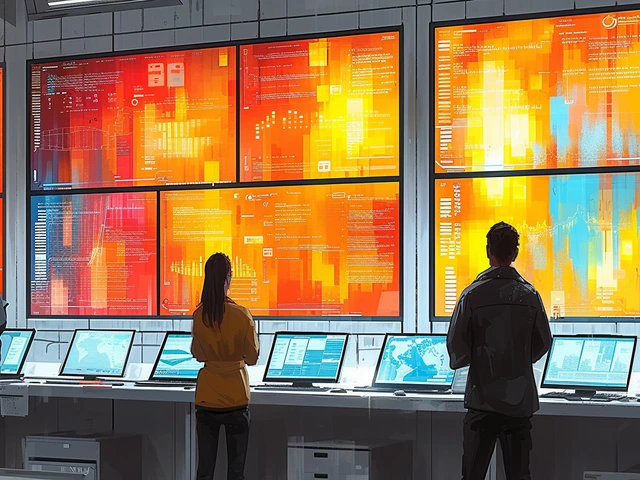Apr
14

- by Elise Caldwell
- 0 Comments
Unlocking the Basics: Where to Begin
Embarking on the journey of becoming a programmer often starts with a mixture of excitement and apprehension. The field of programming is vast, with numerous languages, frameworks, and methodologies to choose from. Before diving deep into complex coding practices, it is crucial to lay a solid foundation. The most game-changing tutorials for beginners are those that not only introduce the syntax of a programming language but also instill a deeper understanding of computational thinking.
Beginning with languages like Python or JavaScript can offer a gentle introduction to coding concepts while providing a platform for building diverse projects. These languages are not only versatile but also widely used in the industry, making skills in these areas highly valuable. Transitioning from theory to practice means getting your hands dirty with code as early as possible. The best tutorials encourage experimenting with what you've learned, turning abstract concepts into real-world applications.
As you delve into programming, remember that mistakes are inevitable and are a crucial part of the learning process. The persistence to troubleshoot and learn from these errors fosters growth and confidence. Surround yourself with a community of fellow learners and seasoned programmers. Engaging in coding forums and participating in coding challenges can immerse you in the culture and ethos of programming, offering both support and inspiration.
Navigating Intermediate Waters: Building on Your Knowledge
Reaching the intermediate stage of your programming journey signifies a pivotal point. It's where theory starts to meld with practice, and you begin to see the potential of your developing skills. At this juncture, exploring more complex aspects of programming, such as data structures, algorithms, and design patterns, becomes crucial. An impactful tutorial will guide you through these concepts with practical examples and challenges that push the boundaries of your understanding.
Committing to personal projects that solve real problems or fulfill real needs can be a thrilling aspect of reaching an intermediate level. It's an opportunity to apply what you've learned in a tangible way, testing your knowledge and creativity. Moreover, this is a time to familiarize yourself with version control systems like Git, an essential tool for any developer that aids in tracking changes, collaborating with others, and managing projects efficiently.
Another key aspect at this stage is learning to read and understand others' code. It might seem daunting at first but dissecting existing projects can provide valuable insights into different coding styles and best practices. Taking the time to contribute to open-source projects can further deepen your knowledge while giving back to the community. The journey through intermediate programming is as much about building technical skills as it is about becoming an integral part of the broader programming community.
Advancing Further: Specializing and Mastering
The landscape of programming offers myriad paths to explore, and as you advance, specializing in a particular domain can set you apart. Whether it's web development, mobile app development, game development, or another area, diving deep into a niche requires dedication and a love for the craft. Advanced tutorials and resources become more vital, as does the need for a strong foundational understanding of computer science principles.
This stage often involves more abstract and complex problem-solving, necessitating a robust grip on algorithms and data structures. Engaging with advanced projects and challenges helps in honing these skills. It's also crucial to stay updated with the latest trends and technologies in your chosen domain. The tech field evolves rapidly, and continuous learning is the key to staying relevant.
As you master your craft, consider mentoring beginners or contributing knowledge through blogging or teaching. Sharing your journey and insights can be incredibly rewarding. It not only solidifies your understanding but also fosters a culture of learning and growth within the programming community. At this advanced stage, your journey is as much about refining your skills as it is about inspiring and guiding others.






Write a comment